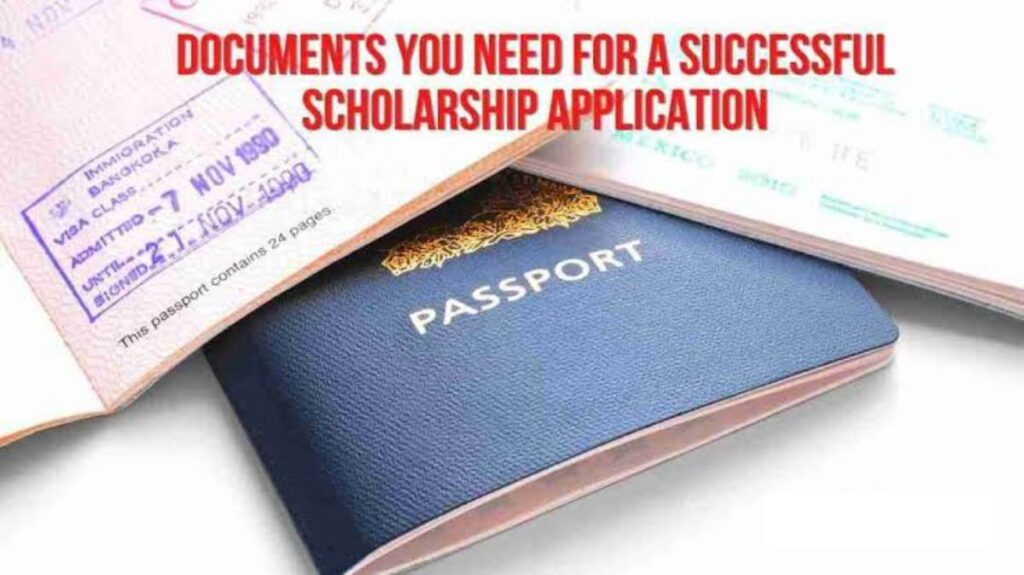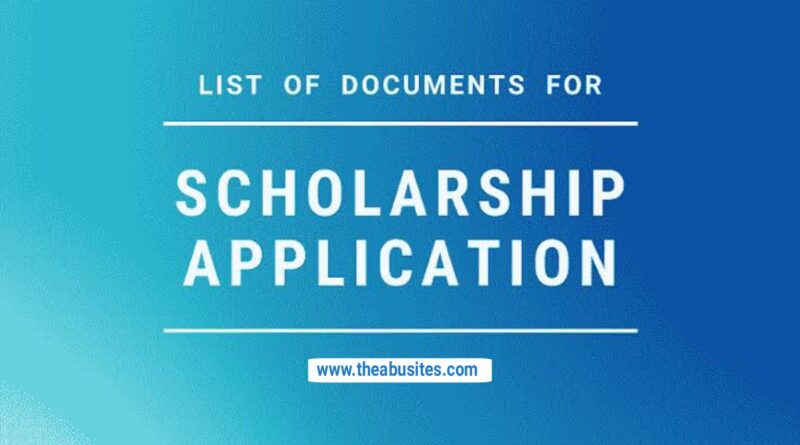7 Important Documents You Need to Apply for Scholarships in 2023
Today, we want to give you a comprehensive list of the seven most important documents you need to apply for scholarships not just in 2023 but beyond.
Applying for scholarships can be likened to applying for a job, were out of many applicants, your documents tend to make you stand out.

Your application documents tend to represent you as your attorney even if there would later be an online screening, test, or interview. The documents are what get you the chance to be shortlisted for the next stage(s) or even selected for the scholarship.
Below are the seven important documents you need to apply for scholarships in 2022 and beyond.
1. Completed scholarship application form
The scholarship application form is unarguably the most vital document. When requested, an application would be incomplete without it.
The application form in most cases serves as a formal request of eligible students by the university or sponsor for the available scholarship and is usually either filled online or uploaded after being downloaded and filled manually.
2. A Well -written CV/Resume
The first assessment of any graduate school advisor is your Curriculum Vitae (CV). An excellently written and well-formatted CV will 8 out of 10 times catch the attention of a potential supervisor in addition to other requirements.
A CV is the summary of your academic and professional accomplishments lumped in one document; showing your educational, research, and work experience.
Some scholarship applications require you to e-mail only your CV and a motivation letter to a prospective supervisor.
3. Academic Transcript
This is also a very essential document. It gives the selection committee insight into your academic background and the credibility of the courses you offered at your undergraduate level.
For most schools in the United States of America, United Kingdom, and Canada, the minimum requirement for graduate admissions is a bachelor’s degree or its equivalent as clearly spelled out.
A high Cumulative Grade Point Average (CGPA) also helps and makes the process very easy, however, students with low CGPA (2:2, Third Class, and HND) can also secure fully-funded scholarships.
NOTE: The student copy of your transcript is still acceptable and final-year students are eligible to apply for scholarships with the transcripts of their penultimate year.
4. Personal Statement/Statement of Purpose
A Statement of Purpose (SOP), also known as a research statement, personal statement, or letter of intent, is a critical piece of a graduate school application that tells the admission panel about your career path, interests, professional contributions, goals, and the driving force behind pursuing a particular program.
Personal statements are vital application documents, especially in the USA, and are usually between 400 to 500 words long.
5. Recommendation Letters
A graduate school application is usually not complete without a recommendation letter. This is a document that verifies all that you have said about yourself in your personal statement. But this time, it is not written by you.
These recommendation letters are preferably from professors/lecturers with whom you have worked (researched) or have known you and can testify to your abilities and intellectual capacity.
It is advisable to let your recommenders know your intent to pursue a postgraduate scholarship and keep tabs on them so that they may submit your letters before the deadline.
6. Standardized Test Scores
To boost candidates’ chances of getting selected, they tend to write international standardized tests (although this is a requirement for some scholarships, especially in the USA) like Graduate Records Test (GRE) and Graduate Management Admission Test (GMAT)
Also, students whose English is not their medium of communication or whose undergraduate degree was not taught in English are required to write English proficiency exams when applying for courses taught in English.
For students whose undergraduate programs were taught in English, a Letter of English Proficiency from their universities would be sufficient.
Common English proficiency exams are the International English Language Testing System (IELTS), Test of English as Foreign Language (TOEFL), and Duolingo.
7. Valid Passport/ID/ Visa
Your passport guarantees that you can move from your home country to the country where you aim to study.
In most cases, a National ID card may be used if a student’s passport is not available. Ideally, the passport document of an applicant should have an expiry date of 6 months after the duration of the study.
Other relevant documents
- Medical Certificate
This document usually reveals your health status and fitness as an applicant, any underlying ailment, and the ability to withstand different climatic conditions.
- Proof of funds
In some countries, students are asked to present a document that shows that they can finance their studies should the scholarship be terminated. This is very common with partially-funded scholarships which some mostly with only tuition fee waivers.
A bank statement revealing an equivalent amount needed to study in the said country for the whole period of the program is sufficient as proof of funds.
- Parents Income Status
Some scholarships request this document to confirm the indigent status of applicants. This is common for undergraduate scholarships.
Visit HERE to check out more Scholarship opportunities
Credit: Scholarship Region





![APPLY: 2024 King Abdullah University Scholarships Program [Fully-Funded] 6 APPLY: 2024 King Abdullah University Scholarships Program [Fully-Funded] 5](https://www.theabusites.com/wp-content/uploads/2022/04/King-Abdullah-University-of-Science-and-Technology-Scholarships-390x205.jpg)


